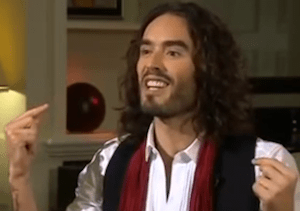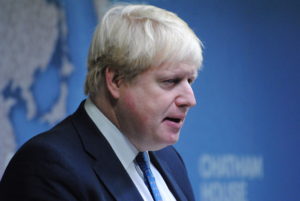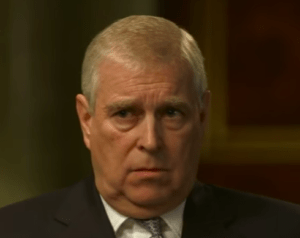Truthdigger of the Week: Russell Brand
In his recent print and television appearances, British comedian Russell Brand, one of the freest men on Earth, has given the left a priceless opportunity.In his recent print and television appearances, the British comedian, one of the freest men on Earth, has given the left a priceless opportunity.
Every week the Truthdig editorial staff selects a Truthdigger of the Week, a group or person worthy of recognition for speaking truth to power, breaking the story or blowing the whistle. It is not a lifetime achievement award. Rather, we’re looking for newsmakers whose actions in a given week are worth celebrating. Nominate our next Truthdigger here.The tygers of wrath are wiser than the horses of instruction.
— William Blake
We in the West are rightly weary of lofty pronouncements from celebrities. In societies shaped by advertising, sane people come to regard statements by the rich, with their carefully constructed images, with extreme skepticism. Promotions for products and political personalities turn out too often to be lies designed to steal money from unwitting consumer citizens, falsehoods that additionally rob their victims of precious time and a measure of their inborn ability to trust.
What to think then of the most recent performances by British comedian Russell Brand? Earlier this month it was announced that Brand, who has been increasingly vocal in his dislike of all manner of elites, would guest-edit an issue of the London-based left-liberal magazine New Statesman. The theme? Revolution. An early-October interview with conspiracy theorist Alex Jones offered an unofficial preview of what was in store to viewers unacquainted with Brand’s political thinking. A newcomer myself, I concluded at the time that the basics of Brand’s sense of what’s wrong were spot on, but that his insistence on mystical sources of salvation exposed him as another celebrity detached from reality. Now, after watching him deflect the provocations of BBC stuffed shirt Jeremy Paxman, and reading his essay in the latest issue of New Statesman — which deserves to be read for its dead-on insight and playful, engaging voice (“The price of privilege is poverty. David Cameron said in his conference speech that profit is ‘not a dirty word.’ Profit is the most profane word we have.”) — I’m less sure.
“Russell Brand, who are you to edit a political magazine?” Paxman asked at the start of their interview as it appears on YouTube. “Is it true you don’t even vote?” he added.
“Yeah, no, I don’t vote,” Brand responded. “Well how do you have the authority to talk about politics then?” Paxman asked. “I don’t get my authority from this pre-existing paradigm which is quite narrow and only serves a few people,” Brand explained. “I look elsewhere, for alternatives that might be of service to humanity.” Gripping his thigh with one hand, an incredulous Paxman inquired, “They being?”
“Well I’ve not invented it yet, Jeremy!” Brand responded. “I had to do a magazine last week. I’ve had a lot on me plate. But I say, here’s the thing you shouldn’t do. Shouldn’t destroy the planet, shouldn’t create massive economic disparity, shouldn’t ignore the needs of the people. The burden of proof is on the people with the power. Not people, like, doing a magazine [which includes writing by Noam Chomsky and Naomi Klein] for a novelty.”
Let’s spend a moment reviewing Russell Brand’s personal history. Wikipedia says he was shipped around during a lonely childhood that included at least one episode of sexual abuse. At some point his father took him on a sex tour of the Far East, presumably in his teens. Around age 17 he enrolled on a scholarship in a prestigious theater school, but was expelled after a year for missing class and using drugs. By the year 2000 he was performing stand-up, and in 2004, around age 29, he embarked on a one-man show centered around an allegedly honest account of his years of addiction to heroin.
We don’t need to guess at the nature of this experience. We have it in Brand’s own words, embedded in a testimony he gave in April 2012 to the British House of Commons Home Affairs Committee. Brand became a drug addict, he said, “because of emotional difficulties, psychological difficulties and perhaps a spiritual malady. For me, taking drugs and excessive drinking were the result of a psychological, spiritual or mental condition. … I was sad, lonely, unhappy and detached, and drugs and alcohol for me seemed like a solution to that problem.” Addiction is a “disease” and an “illness,” he declared, which led to him being arrested 12 times. “I was a criminal when I was a drug addict … by virtue of my addiction, and the ways that I had to acquire money to get drugs.” He credits his recovery to the methods of Focus 12, a drug and alcohol rehabilitation organization that he now helps support financially and which is helping large numbers of other addicts recover.
What stands out from all of this is the comedian’s obvious deep, personal acquaintance with suffering and taboo joys, and an accompanying inability to burnish himself with an image that commands the respect of those who regard straightened ties, perfect grammar and a refusal to swear as true marks of decency. Brand did everything those people learned not to. Though it was not always healthy or attractive, he energetically embraced life. He didn’t go to Eton, the proud training ground of so many well-behaved scions of the kingdom and then the empire. He dropped out of school, dove headfirst into a hedonistic decade of drugs and alcohol, and took his pleasures between the thighs of who knows how many women. Having survived the variety of experiences of youth and taken their lessons seriously, he is now more or less always free to be at play.By comparison, what kind of person is Paxman? He appears first in the interview with his arms crossed, laughing dryly with a downward gaze as he shifts in his chair. He wears a conventional outfit of suit and tie that conveys a sort of comfort in rigid conformity. He smiles on occasion, but when he does, it’s not clear he’s experiencing joy. “Why don’t you change it then?” he demands of Brand, speaking of society’s general poor condition in one of his many exhortations that the actor get real. A permanent look of disturbed concern, periodically punctuated in its seriousness with a cocked eyebrow or a bit lower lip, tells viewers inclined to identify with the interviewer that no matter how powerful and precise are his guest’s articulations, nothing he says should be taken too seriously. The good man says and does nothing personal, while the bad one makes facetious jokes that we are told are irresponsible. If Paxman ever read Jonathan Swift, it’s not clear that he enjoyed it.
The means and ends of social improvement are points of disagreement, but there is little dispute across the U.S. and the U.K. that society itself must change. Paxman claims that this change occurs when “people get power” by being voted in. “In a democracy that’s how it works.” But history is dotted with moments when that’s not how it worked: 13th-century England, America in 1776 and France in 1789. Brand recognizes it doesn’t work. “People have voted already and that’s what’s created the current paradigm,” he says. “We no longer have the luxury of tradition.”
There are good reasons to be critical of the view that people should abstain entirely from voting. Ticking an independent box on Election Day or writing in “Popeye” or “Daffy Duck” is a real way to register one’s dissent, even if voters aren’t likely to do it in numbers large enough to force candidates to take notice. But it is undeniable that the British and American electoral systems consistently fail to put up alternatives to the status quo, and that under this arrangement, voting can do little more than express the constraints placed upon voters’ imaginations. It soon becomes clear that democracy does not exist simply because a choice is offered, but rather is made possible in those so far rare eras when citizens are empowered economically, politically and socially to vote their individual and community interests. It’s the absence of democracy then, the phony kind that now exists in name only — not democracy itself — that Brand seems to actually reject.
The confrontation between these two men, one impassioned, animated and indignant, the other unfailingly certain of himself and his wisdom, is exemplary of an ongoing combat that must be at least as old as civilization. One view holds that survival and well-being for some, though never possibly all, are best achieved through recourse and obedience to existing institutions. The other demands that we reinvent those institutions and ourselves as needed to fit shifting social and environmental circumstances, in the interest of everyone in the band. The history of progress, whenever it was made, is not indifferent about which view is correct.
What will be the consequence of Brand’s magazine and speech? One headline traded across the Internet asked whether Brand started a revolution with his responses to Paxman. My Facebook feed, which features content posted by people on the right and the left, showed mostly favorable reactions to Brand’s work. A number of people whom I’ve never known to use the word “revolution” were blatantly supportive. A few were not. One, a retired journalist living in Wales, presented some of Brand’s past antics as proof that he should be regarded as a “worthless multi-millionaire.” It seems I may have lost his friendship for arguing that Brand’s words were significant if only because they let discouraged people know they were not alone in feeling their leaders are against them, and that renewed feelings of genuine connection to others, especially the seemingly indifferent species that appears on TV, can engender other constructive feelings, thoughts and actions. Movements are helped to grow gradually this way with the aid of compelling speakers. “I’m here just to draw attention to a few ideas; I just want to have a little bit of a laugh,” Brand said. “I’m saying there are people with alternative ideas that are far better qualified than I am, and far better qualified, more importantly, than the people that are currently doing that job. Because they’re not attempting to solve these problems. They’re not. They’re attempting to placate the population.” And Jeremy Paxman is certainly among them.
The left is right to criticize celebrity. But famous actors remain real people, and we objectify and dismiss them out of hand, without inspecting their words and actions, at the risk of losing the opportunities their fame presents to draw larger audiences into an urgent discussion. Is Brand capitalizing on the discontent flaring in the West? No doubt. But is he harming the public in doing so? The evidence available so far seems to suggest no. He is paid to misbehave when so many of us cannot. As long as does so in the interest of positive change, he deserves our support. We may want a society that drastically minimizes the role of celebrities, but the one we currently have grants them substantial influence and power, and refusing their offers to help makes us fools, especially one as likable and enthusiastically disrespectful of elite power as Brand. The comedian knows the dynamic well: “Perhaps this is why there is currently no genuinely popular left-wing movement to counter Ukip, the EDL and the Tea Party; for an ideology that is defined by inclusiveness, socialism has become in practice quite exclusive.” I suspect those suspicious of Brand fear the public and the media will make the mistake of anointing another false savior. The left made this error twice in recent years. It need not make it again. “What I want to offer people is truth and authenticity,” Brand said during his 2012 parliamentary hearing. No doubt because of his vocal efforts a number of people who were previously unengaged, many of them young and desperate for real change, are for the moment listening. Let’s take this valuable opportunity that Russell Brand, our Truthdigger of the Week, has provided.
Heaven smiles down:
Watch Alex Jones interview Brand Watch Brand Get Banned from the GQ Awards Show Watch Brand say ‘I Am Bradley Manning’
Your support matters…Independent journalism is under threat and overshadowed by heavily funded mainstream media.
You can help level the playing field. Become a member.
Your tax-deductible contribution keeps us digging beneath the headlines to give you thought-provoking, investigative reporting and analysis that unearths what's really happening- without compromise.
Give today to support our courageous, independent journalists.






You need to be a supporter to comment.
There are currently no responses to this article.
Be the first to respond.